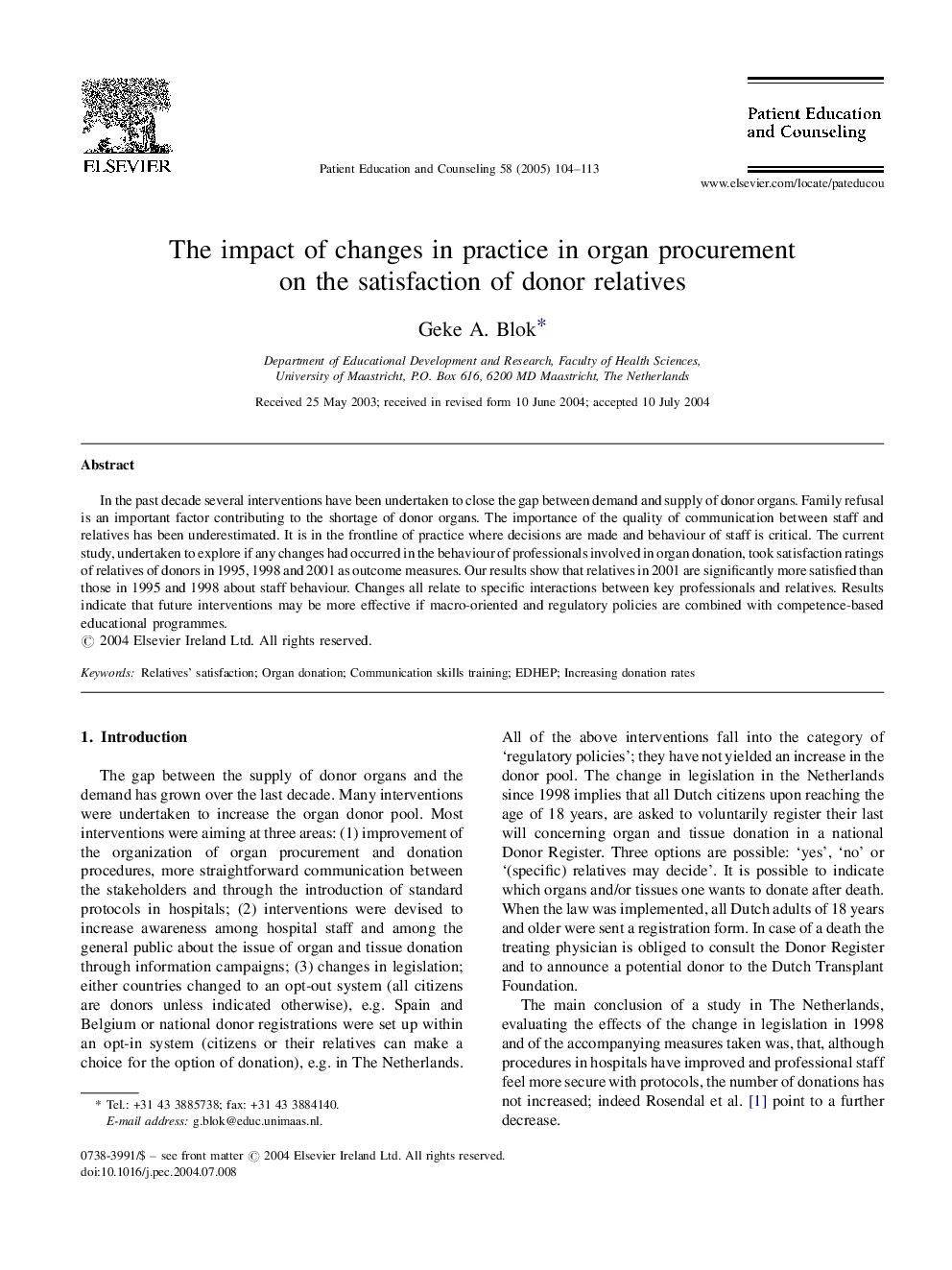| Article ID | Journal | Published Year | Pages | File Type |
|---|---|---|---|---|
| 9302155 | Patient Education and Counseling | 2005 | 10 Pages |
Abstract
In the past decade several interventions have been undertaken to close the gap between demand and supply of donor organs. Family refusal is an important factor contributing to the shortage of donor organs. The importance of the quality of communication between staff and relatives has been underestimated. It is in the frontline of practice where decisions are made and behaviour of staff is critical. The current study, undertaken to explore if any changes had occurred in the behaviour of professionals involved in organ donation, took satisfaction ratings of relatives of donors in 1995, 1998 and 2001 as outcome measures. Our results show that relatives in 2001 are significantly more satisfied than those in 1995 and 1998 about staff behaviour. Changes all relate to specific interactions between key professionals and relatives. Results indicate that future interventions may be more effective if macro-oriented and regulatory policies are combined with competence-based educational programmes.
Related Topics
Health Sciences
Medicine and Dentistry
Medicine and Dentistry (General)
Authors
Geke A. Blok,
